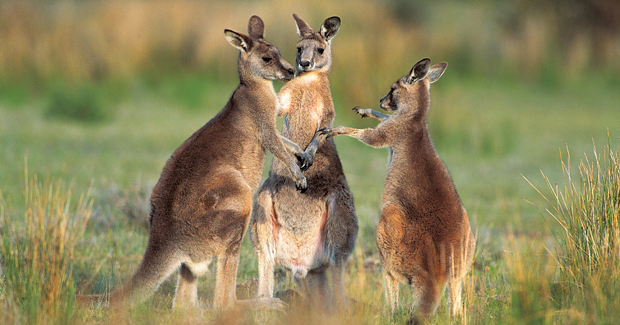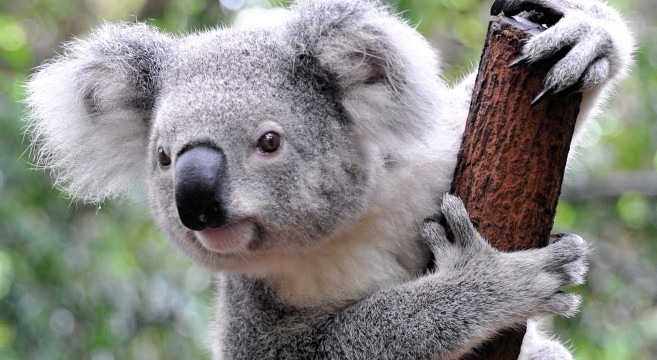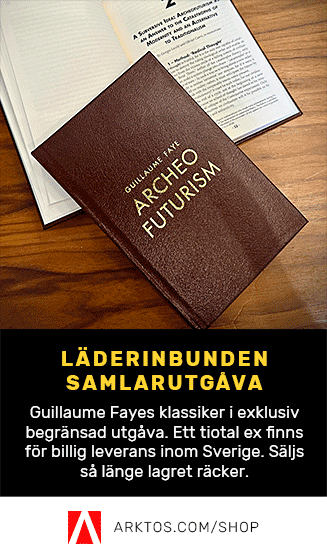Jim Saleam är en av australisk nationalisms grand old men. I hans rika internetarkiv finner vi bland annat artiklar av de Benoist, Spengler, Yockey och Thiriart, men också australiska och nyzeeländska namn som Stephensen och Bolton.
Australien är på många sätt en ny nation, ett fascinerande exempel på pågående etnogenes. Några aspekter av sådan etnogenes är myt och geopolitik, Saleam har bland sina många artiklar fått med intressanta exempel på detta.
Australien som myt
Australia is a unique country. All countries are unique, but this one is particularly so. Visitors, such as D. H. Lawrence, have discerned a spiritual quality of ancient loveliness in our land itself. The flora and fauna are primitive, and for the most part harmless to man, but to the visitor there is another element, of terror, in the Spirit of the Place. The blossoming of the waratah, the song of the lyrebird, typify the spirit of primitive loveliness in our continent; but the wail of the dingo, the gauntness of our tall trees by silent moonlight, can provide a shiver of terror to a newcomer. Against a background of strangeness, of strange beasts and birds and plants, in a human emptiness of three million square miles, our six million white people, of immigrant stock, mainly from Europe, are becoming acclimatised in this environment new to them but geologically so old that Time seems to have stood still here for a million years.
– Stephensen
Den skandinaviskättade författaren PR Stephensen (1901-1965) var en fascinerande människa. Hans mål var att skapa en distinkt australisk kultur, så att det som varit en kolonial kultur skulle bli en nation. Han stod långt till höger, men kämpade samtidigt för aboriginernas rättigheter (och för här tankarna till den på samma gång nationellt sinnade och same- och inuitvänlige Ossian Elgström). För mycket ska här inte sägas om Stephensens politiska projekt, det intressanta idag är viljan att skapa en lokal kultur.
Stephensen menade att det som skapar kulturer är ”Race and Place”, detta innebar att de européer som bosatt sig i Australien skulle komma att formas av den nya miljön. Men den australiska kultur som växte fram hade att övervinna det koloniala mönstret av beroende och ensidig import. Stephensen skriver:
As a colony, we exported raw material and imported manufactured goods and loans. The trade traffic was two-ways. We imported also the imponderables, culture, by a system of one-way traffic. As a nation we shall continue to import culture, but we shall export it also, as our contribution to world-ideas—there will then be a two-ways traffic in the imponderables.
I ett Sverige som idag är en koloni under USA, både politiskt och kulturellt, kan Stephensens intresse för genius loci, och för skapandet av en egen autentisk kultur, vara av intresse. Inte minst kan hans beskrivning av den australiska historien, hur en kultur och en identitet gradvis föds, vara värdefull att jämföra med svensk historieskrivning. Vi har haft göticismen, men sedan decennier är den endast latent. Intressant är att den ”tröghet” som ofta svenskar beskylls för även förknippats med australiensare. Men även där är den enbart skenbar. Stephensen skriver:
To those who know Australia and the Australians, this mental inertness, this smugness, is a complete anomaly. Physically—man for man and woman for woman—the Australian is more than on a par with the world’s best. Mentally, the Australian is not actually a sluggard—on the contrary the Australian is particularly energetic as an individual. The deplored inertia and smugness would seem to have resulted, not from any inherent intellectual incapacity in the Australian, but rather from some remediable condition, some external phase of life, some wrong turning which has been taken nationally.
Han identifierar också den australiska kulturen som demokratisk och egalitär, även här finns likheter med det svenska:
Our Australian mode, let me here repeat, is democratic and egalitarian. We can never expect to establish a national culture on ”Aristocratic” or ”exclusive” principles. We must be robust, fecund, original—be ourselves, with the defects of our qualities as well as the merits.
Sammantaget är det alltså en värdefull essä, där Stephensen beskriver förutsättningarna för en nations födelse. Dessa förutsättningar är snarare kulturella än politiska, något som också är av intresse för dagens svenskar.
Vi hittar Stephensens givande essä här:
The Foundations Of Culture In Australia: An Essay Towards National Self-Respect. Part One
The Foundations Of Culture In Australia: An Essay Towards National Self-Respect. Part Two
The Foundations Of Culture In Australia: An Essay Towards National Self-Respect. Part Three

Australisk geopolitik
Our historical survey tells us that Australia was the Terra Australis Magna Incognita (Great Unknown Land of the South), at first, a legend, an inspiring myth. Many had ’touched’ it, but left no real depth of settlement. It was too harsh, too isolated, too untamed and difficult to exploit or to develop. In that sense we modern Australians have taken over the Continental legends from all humanity and made them our own; we find our sense of Place, not just from our modern European origin, but from the history of the South Land itself.
Yet, we are those who would discover our land from within. In doing so, we take over the mythos of the old Aboriginal peoples and the facts of other human habitation, for we also regard the differentialist aspects of our spirit (that is, those things which differentiate us from Europeans pure and simple) as establishing our native quality. If we dwell in this land and love it, finally asserting we have no other land, then its primordial ’dreaming’ – is ours too.
– Saleam
Etnogenes har även en geopolitisk aspekt, man kan exempelvis inte tänka sig ett Preussen som inte växt fram omgivet av andra stater. Saleam tar upp Australiens geopolitik i en läsvärd artikel.
Inspirerad av den europeiska geopolitiska traditionen analyserar han där förutsättningarna för australiskt oberoende. Han tar upp både historien och geografin, och finner att Australiens intressen bäst tjänas av en fredlig utrikespolitik och en allians med Nya Zeeland. Eventuella hot mot Australien kommer från Asien, och i synnerhet Indonesien framstår som en hotfull granne. Saleam skriver:
Our politics must necessarily look towards the peaceful resolution of population problems, of building a cordon of friendly states between ourselves and potential aggressor states (where necessary favouring the break-up of Indonesia and other post-colonial states), of having useful alliances amongst the Pacific and Melanesian peoples.
Sammantaget är det en intressant artikel, ihop med Stephensens essä kan den förhoppningsvis bidra till funderingar i liknande banor hos den svenske läsaren. Vi hittar den här:













